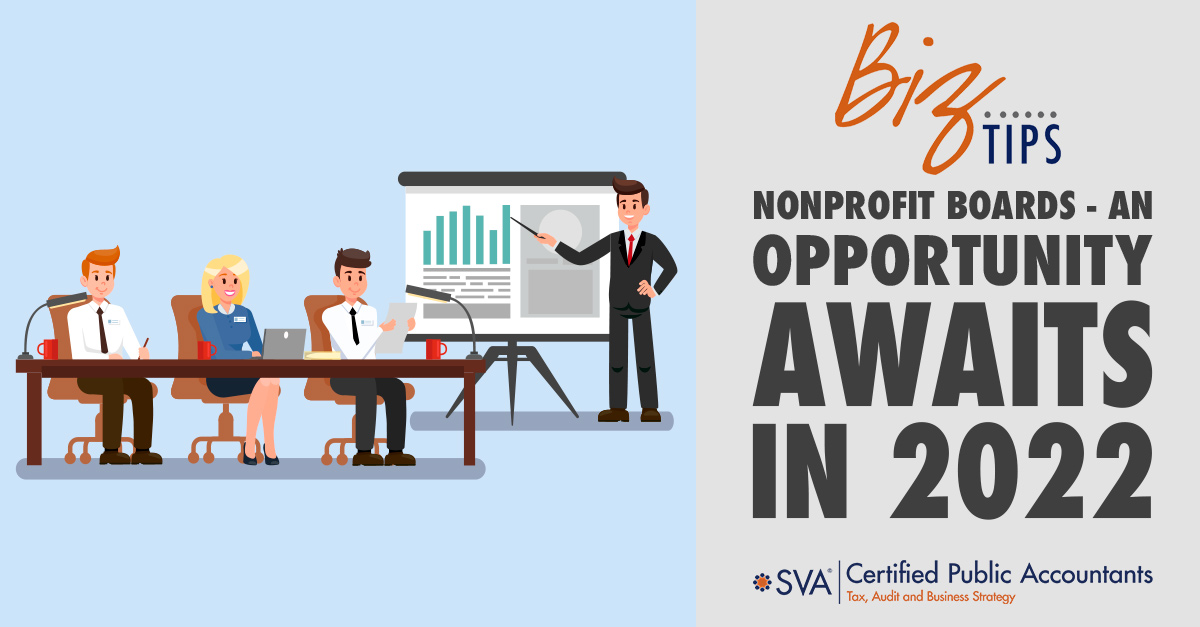Let’s step back before the pandemic and consider how your board of directors functioned. You received reports from the executive director, discussed the mission and vision, and planned the strategic direction of the organization.
(Download Video Transcript)
Once the pandemic hit, chaos began. The environment was all about current survival and looking to the next month, not the following year. As the pandemic continues to impact your organization, there is a tendency to stay in the current, focusing on the next week or month.
As a board member, you have a commitment to the organization you serve to ensure it survives and thrives into the future and it is time to look ahead (again). What follows are a few of the significant strategic challenges you’ll face in 2022 and should be ready to tackle.
Nonprofit Strategic Challenges in 2022
Revenue Streams
Many organizations benefited from government funding at the local, state, and federal levels. These much-needed resources functioned as the organization’s lifeline and created a better financial picture.
But what now? Access to many of those funds are ending. Do you know how the organization’s revenue will look next year and beyond? Consider if your organization will ever “return to pre-pandemic normal” or if the changes you made will be permanent. Schedule a strategic discussion around revenue streams and develop a five-year plan with yearly goals.
Staffing Considerations
Staffing shortages are making headlines every week. How has that impacted your organization and its ability to offer programs in the future?
Your plan may be back to the same program levels you had a few years ago, but have you thought through how the labor shortage may change that outcome? And don’t forget remote working is here to stay. It is now an expectation for many employees.
(Download Video Transcript)
Risk Management
As staff transitioned to remote working, the internal control structure also changed which can open your organization to a greater risk of fraud, inaccurate financial records, and puts your employees at a disadvantage.
It might seem like a good idea to let your primary bookkeeper take care of all the accounting and financial functions. After all, she/he knows what needs to be done. But wait. It is not about knowing what to do or “trusting” your staff. It is about ensuring you keep appropriate internal controls to reduce the risk to your organization.
There always needs to be checks and balances, even when staff are remote. This might be the time to consider outsourcing some of your accounting functions rather than working with a one-person accounting situation. Put aside some funds and hire a firm to perform an internal control assessment of your organization now. A professional will highlight the areas of concern and make recommendations to address your risk factors.
As a board member, your role is not to be involved in the day-to-day operations, but you need more than a casual understanding of the organization. Board members should serve as a sounding board for the Executive Director and/or CFO. Being a board member is more than just attending monthly meetings. Get involved. Understand your role. Get the training you need.
SVA offers customized Board Building Training to help you move your organization forward. Commit the time and funds to propel your board into the future. It is the most significant impact you can make this year.

© 2022 SVA Certified Public Accountants

